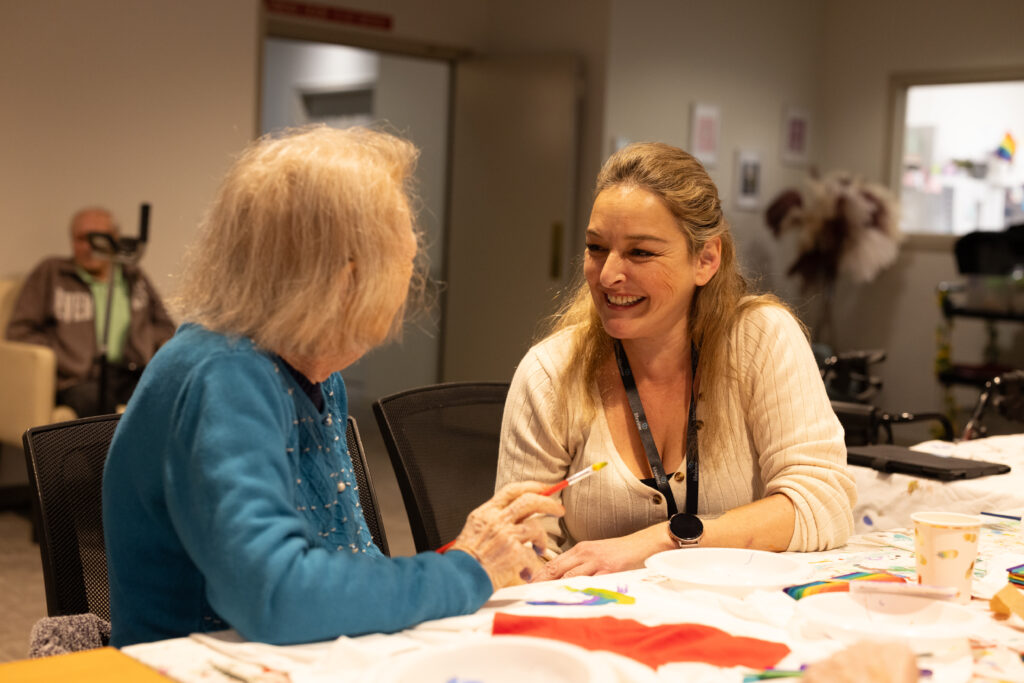With the current shortage of aged care workers, it is crucial that we strengthen the current workforce’s capability and develop meaningful learning pathways to help attract more people to the sector and increase quality of care.
For this reason, Dementia Australia has announced the launch of four new Leadership and Practice Change education programs for care workers.
At the completion of these programs, participants will have enhanced skills and knowledge in identifying needs and implementing strategies to influence positive change in their workplaces.
Leading the charge to improve the dementia capability of the aged care workforce by developing and empowering staff, the programs provide opportunities for ongoing development and learning pathways for future leaders in the sector.
“Strong leadership was recognised as a critical element of sustained practice improvements by the Royal Commission into Aged Care Quality and Safety and in response, also by the Federal Government,” says Dementia Australia CEO Maree McCabe AM.
The range of accredited and non-accredited programs is spearheaded by the first ever fully-funded, national 10993NAT Certificate IV in Dementia Practice and will build participants’ leadership skills within the aged and community care sector.
The four Leadership and Practice Change programs, designed and delivered by Dementia Australia as part of Dementia Training Australia, are funded by the Australian Government.
Further details on the different programs include:
- The 10993NAT Certificate IV in Dementia Practice: a qualification designed to enhance the dementia practice, knowledge and skills of existing workers, and strengthen the capacity of existing staff to be dementia practice leaders. It provides participants with advanced tools to become leaders in implementing practice change so they can support staff, families and carers in improving the lives of people living with dementia.
- Demonstrating Dementia Leadership: a program that explores the knowledge and skills required to lead teams and individuals by modelling good practice and demonstrating how to influence team performance. The content covers two units of competency from the 10993NAT Certificate IV in Dementia Practice: BSBLDR411 Demonstrate leadership in the workplace, and BSBLDR414 Lead team effectiveness.
- Leading Quality Dementia Care: a program that explores the benefits of self-leadership in the context of supporting people living with dementia, working collaboratively with staff, working in partnership with families and thriving within organisational frameworks. The program provides four modules of learning including trust, communication, diversity and stress management.
- And, Community of Practice (CoPs), that will build relationships to support members to share knowledge and lead improvements in practice. This national network of CoPs will build on the success of the previous program that was funded by the Priceline Sisterhood Foundation and evaluated by Swinburne University of Technology.
Strong leadership in aged care is fundamental to the delivery of high-quality dementia care.
These courses and programs will help build leaders in dementia practice to improve team effectiveness, communication, performance and practice.
For more information on how to register your staff/teams, please click here.
Dementia Australia (RTO CODE: 2512) provides a nationally accredited training courses for residential and community care services professionals and healthcare providers in our own right and on behalf of other States and Territories.
Dementia Training Australia is a major funder of these programs under the Australian Government Dementia and Aged Care Services Fund and delivered by Dementia Australia (RTO CODE 2512). Visit dta.com.au
Do you have an idea for a story?Email [email protected]
 Aged Care Insite Australia's number one aged care news source
Aged Care Insite Australia's number one aged care news source



